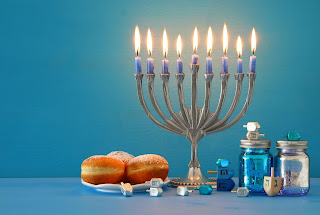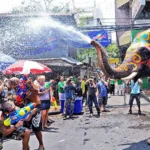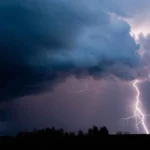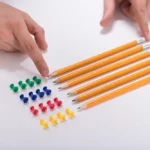
Hanukkah is an eight-day and nightly Jewish festival honoring the rededication of the Holy Temple in Jerusalem, which took place in the 2nd century BC. The Greco-Syrian ruler, Antiochus IV, tried to impose Greek culture on the Jews in Judea (Israel). This re-dedication of the Temple occurred after the Maccabees (Jewish religious rebels) regained the temple. Hanukkah is the Hebrew word for initiation. Hanukkah begins on the 25th day of Kislev, which, depending on the Jewish calendar, can last from late November to late December. To celebrate Hanukkah, a nine-pronged chandelier called the menorah is lit with candles every night until the eighth night. Additional branches and light are designed to provide light for purposes other than meditation or advertising.
The holiday marks the victory of a group of rebellious Jews known as the Maccabees in the Greek-Syrian seizure of their temple.
Due to historical reasons, the holiday lasts eight days. When the Maccabees brought back the Temple, there was enough refined oil to keep the temple dedicated for just one day. As if a miracle, the light remained burning for eight days.
The temple needed holy light to burn at all times, but the Jews only had enough oil for one night. Amazing, but the lights were on for eight days.
The ninth menorah candle is usually located in the center of the menorah and is used to light the other eight candles each night.
It used to be a tradition for people to give money to one another for Hanukkah. But as Christmas became more and more popular, more and more Jews started giving gifts.
This menorah is also known as Hanukkah. Although candles are used to light the menorah today, they use oil.
Latkes, sufganiyot (jelly donuts), fried apples, balls – if you think about the food served in Hanukkah, most of them are deep fried. This is not a coincidence; People fry their food in Hanukkah oil, symbolizing the magic oil that burns eight consecutive nights.
Candles are placed in the menorah from right to left. They are illuminated from left to right.
The Grand Army Plaza in New York is said to have the largest menorah in the world.
Families eat potato pancakes (latkes) and sweets filled with jelly donuts (sufganiyot) and other butter-fried foods during Hanukkah. This practice of frying butter is reminiscent of holy oil.
Hanukkah is not a major Jewish holiday. Jewish holidays such as Passover and Rosh Hashanah are of much greater importance to religion.
Hanukkah is also a time when children are encouraged to study their Torah. They were given gifts and money for their education during Hanukkah.
Harry Truman is the first President to celebrate Hanukkah at the White House. In 1951 he received a menorah as a gift from Israeli Prime Minister David Ben-Gurion.
Gelt is the Yiddish word for money. Today, children are given checks, bonds, and small brown coins in gel form.
There is no “wrong” way to spell Hanukkah.
Dreidel is a popular toy during Hanukkah. It is a four-sided apex with a Hebrew letter on each side. The four letters are shin, hay, gimel and nun. These letters mean Nes Gadol Hayah Sham in Hebrew, which means a great miracle happened there.
Throughout Hanukkah, more than 17.5 million jelly donuts were consumed in Israel.
The game of Dreidel is played with candy. The man who ends up owning all the candy is the winner.
Jews follow the tradition of encouraging their children to study the Torah on this holiday by giving them gel or chocolate wrapped in gold that looks like coins.
During the eight days of Hanukkah, the entire hall was recited and psalms were praised.
The famous Dreidel, or four-sided record player, was created as a distraction.
The phrase “Al Hanisim” thanks God for all the miracles during Hanukkah has been added to the prayer.
The Greco-Syrians prohibited Jewish studies, so Jews turned to dreadlocks to pretend to be just playing around while they were writing.
Initially the menorah was placed in front of the front door, now it is usually displayed in the window.
Due to the bright Jewish calendar, Hanukkah is not the same day every year.
Hanukka’s last night in Germany was very special. Great fires were made from the remains of oil and wicks, and people danced and sang around the flames. Celebrations often last until the early hours of the morning.
Holidays always start on Kislev 25, which means they usually fall in November or December on the Gregorian calendar – the same time of year as Thanksgiving and Christmas.
Children in Yemen travel from house to house carrying lead to collect fuses for their menorah.
The Torah does not mention Hanukkah at all.
Hanukkah is similar to Christmas in that it is a time when families come together to share blessings, food, music and traditions. Both holidays are rooted in religious beliefs.









